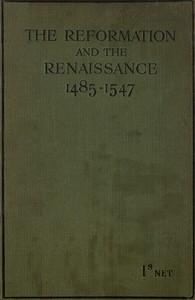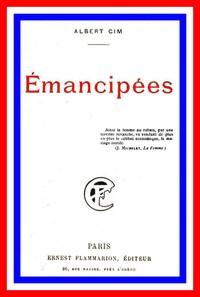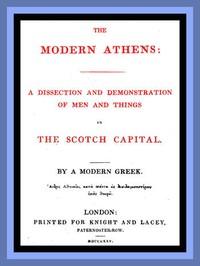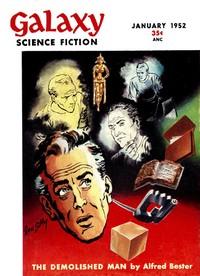Read this ebook for free! No credit card needed, absolutely nothing to pay.
Words: 39651 in 12 pages
This is an ebook sharing website. You can read the uploaded ebooks for free here. No credit cards needed, nothing to pay. If you want to own a digital copy of the ebook, or want to read offline with your favorite ebook-reader, then you can choose to buy and download the ebook.


: The Reformation and the Renaissance (1485-1547) Second Edition by Bewsher F W Frederick William Compiler Bell Kenneth Kenneth Norman Editor Winbolt S E Samuel Edward Editor - Reformation England; Great Britain History Tudors 1485-1603 Sources
with as many men of war as they could put in a readiness to aid the King if need should be. In the which number were the Earl of Essex and the Lord Montjoy, with divers other.
In the meantime, James Twitchet, Lord Audely being confederate with the rebels of Cornwall, joined with them, being come to Wells, and took upon him as their chief captain to lead them against the natural lord and king. From Wells they went to Salisbury, and from thence to Winchester, and so to Kent where they hoped to have had great aid, but they were deceived in that their expectation. For the Earl of Kent, George, Lord of Abergavenny, John Brook, Lord Cobham, Sir Edward Poinings, Sir Richard Gilford, Sir Thomas Bourchier, John Peche, William Scot, and a great number of people, were not only prest and ready to defend the country to keep the people in due obedience, but bent to fight with such as would lift up sword or other weapon against their sovereign lord, insomuch that the Kentishmen would not once come near the Cornishmen to aid or assist them in any manner or wise. Which thing marvellously dismayed the hearts of the Cornishmen when they saw themselves thus deceived of the succours which they most trusted upon, so that many of them fled in the night from their company and left them, in hope so to save themselves. The captains of the rebels, perceiving they could have no help of the Kentishmen, putting their only hope in their own puissance, brought their people to Blackheath, a four miles distant from London, and there in a plain on the top of an hill they ordered their battles either ready to fight with the King if he would assail them, or else assault the city of London; for they thought the King durst not have encountered with them in battle. But they were deceived, for the King, although he had power enough about to have fought with them before their coming so near to the city, yet he thought it best to suffer them to come forward, till he had them far off from their native country, and then to set upon them being destitute of aid of some place of advantage.
The city was in a great fear at the first knowledge given how the rebels were so near encamped to the city, every man getting himself to harness and placing themselves some at the gates some on the walls, so that no part was undefended. But the King delivered the city of that fear; for after that he perceived how the Cornishmen were all day ready to fight and that on the hill, he sent straight to John, Earl of Oxenford, Henry Bourchier, Earl of Essex, Edmund de la Poole, Earl of Suffolk, Sir Rise ap Thomas, and Sir Humphrey Stanley, noble warriors with a great company of archers and horsemen, to environ the hill on the right side, and on the left, to the intent that all byways being stopped and foreclosed, all hope of flight should be taken from them. And incontinently he himself, being as well encouraged with manly stomachs as furnished with a populous army and plenty of artillery, set forward out of the city, and encamped himself in Saint George's field, where he on the Friday at night then lodged.
On the Saturday in the morning, he sent the Lord Daubeney with a great company to set on them early in the morning, which first got the bridge at Dertford Strand, which was manfully defended by certain archers of the rebels, whose arrows were in length a full cloth yard. While the earls set on them on every side, the Lord Daubeney came into the field with his company, and without long fighting the Cornishmen were overcome; and first they took the Lord Daubeney prisoner, but whether it were for fear or for hope of favour, they let him go at liberty without hurt or detriment. There were slain of the rebels which fought and resisted, above two thousand men , and taken prisoners an infinite number, and amongst them the blacksmith and other the chief captains, which were shortly after put to death. When this battle was ended, the King wanted of all his numbers but three hundred which were slain at that conflict.
Some affirm, that the King appointed to have fought with them not till the Monday and preventing the time set on them on the Saturday before, taking them unprovided and in no array of battle, and so by that policy obtained the field and victory. The prisoners as well as captains and others were pardoned, saving the chief captains and first beginners, to whom he shewed no mercy at all. The Lord Audley was drawn from Newgate to Tower Hill in a coat of his own arms painted upon paper reversed and all torn, and there was beheaded the four and twentieth of June. Thomas Flammock and Michael Joseph were hanged, drawn and quartered after the manner of traitors, and their heads and quarters were pitched upon stakes and set up in London and in other places, although at the first the King meant to have sent them into Cornwall to have been set up there for a terror to all others. But hearing that the Cornishmen at home were ready to begin a new conspiracy, lest he should the more irritate and provoke them by that displeasant sight, he changed his purpose, for doubt to wrap himself in more trouble than needed.
PERKIN WARBECK'S CONFESSION .
The confession of Perkin as it was written with his own hand, which he read openly upon a scaffold by the Standard in Cheape.
"It is first to be known that I was born in the town of Turney in Flanders, and my father's name is John Osbeck, which said John Osbeck was controller of the said town of Turney, and my mother's name is Katherine de Faro. And one of my grandsires upon my father's side was named Diricke Osbecke, which died. After whose death my grandmother was married unto Peter Flamin, that was receiver of the forenamed town of Turney and dean of the boatmen that row upon the water or river called the Schelt. And my grandsire upon my mother's side was Peter de Faro, which had in his keeping the keys of the gate of St. John's within the same town of Turney. Also I had an uncle called Master John Stalin, dwelling in the parish of St. Pias within the same town which had married my father's sister whose name was Johne Jane with whom I dwelt a certain season. And after, I was led by my mother to Antwerp for to learne Flemish in a house of a cousin of mine, an officer of the said town called John Stienbeck, with whom I was the space of half a year. And after that I returned again to Turney by reason of wars that were in Flanders. And within a year following I was sent with a merchant of the said town of Turney named Berlo, to the mart of Antwerp where I fell sick, which sickness continued upon me five months. And then the said Berlo sent me to board in a skinner's house that dwelled beside the house of the English nation. And by him I was from thence carried to Barrow mart and I lodged at the 'Sign of the Old Man' where I abode for the space of two months.
"After this the said Berlo sent me with a merchant of Middlesborough to service for to learn the language, whose name was John Strew, with whom I dwelt from Christmas to Easter, and then I went into Portugal in company of Sir Edward Brampton's wife in a ship which was called the queen's ship. And when I was come thither, then was I put in service to a knight that dwelled in Lushborne, which was called Peter Vacz de Cogna, with whom I dwelt an whole year, which said knight had but one eye. And because I desired to see other countries I took licence of him and then I put myself in service with a Breton called Pregent Meno, who brought me with him into Ireland. Now when we were there arrived in the town of Cork, they of the town came unto me and threatened upon me that I should be the Duke of Clarence's son that was before time at Dublin.
"But forasmuch as I denied it, there was brought unto me the holy evangelists and the cross, by the mayor of the town which was called John Llellewyn, and there in the presence of him and others I took mine oath that I was not the foresaid duke's son, nor none of his blood. And after this came unto me an English man whose name was Stephen Poitron and one John Water, and said to me, in swearing great oaths, that they knew well that I was King Richard's bastard son, to whom I answered with like oaths that I was not. Then they advised me not to be afeared but that I should take it upon me boldly, and if I would do so they would aid and assist me with all their power against the King of England, and not only they, but they were well assured that the Earl of Desmond and Kildare should do the same.
"For they forced not what they took, so that they might be revenged on the King of England, and so against my will made me learn English and taught me what I should do and say. And after this they called me the Duke of York, second son to King Edward the fourth, because King Richard's bastard son was in the hands of the King of England. And upon this the said Water, Stephen Poitron, John Tiler, Hughbert Burgh with many others, as the aforesaid earls, entered into this false quarrel, and within short time others. The French King sent an ambassador into Ireland whose name was Loit Lucas and master Stephen Friham to advertise me to come into France. And thence I went into France and from thence into Flanders, and from Flanders into Ireland, and from Ireland into Scotland, and so into England."
RECEPTION OF PRINCESS CATHARINE .
Free books android app tbrJar TBR JAR Read Free books online gutenberg
More posts by @FreeBooks

: The Flower-Patch Among the Hills by Klickmann Flora - Friendship; Country life England; Household employees; England Social life and customs 20th century








